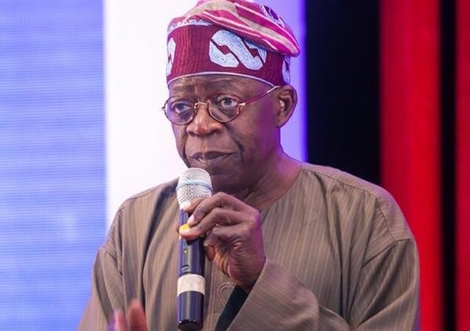Hot Stories
Recent Stories
The Tinubu Factor in Yoruba and Nigerian Affairs
Posted by Odinaka on Sun 28th May, 2017 - tori.ngA Nigerian writer and columnist has penned an interesting piece about Asiwaju Ahmed Bola Tinubu's significance which straddles not only in Yoruba affairs but also the postcolonial fate of Nigeria.

Bola Tinubu
An article like this necessarily must commence with a caveat. There is a usual angst when it comes to writing about public figures, and especially when these figures are politicians who are caught in the eye of the storm. If there is any political figure whose reputation has always hung in the balance, it is Asiwaju Bola Ahmed Tinubu.
There is therefore the likely expectation that one would be expected to toe the line of the regular Tinubu-bashing that has become the pastime of political commentators in Nigeria. My commentary will be more reclamatory than condemnatory. The leadership problematic in Nigeria requires that we pay adequate attention to rescuing what is given to us in terms of leaders and those who can be forced to achieve what is needed for the task of nation building in Nigeria. And all this becomes imperative despite their human frailty.
Asiwaju Tinubu’s significance straddles not only Yoruba affairs but also the postcolonial fate of Nigeria. He began as an activist-politician whose democratic audacity, together with the tenacious agitation of NADECO, caught the attention and hearts of Nigerians at the height of the aborted June 12 democratic saga in Nigeria. The significance of June 12, in my reckoning, goes beyond the truncation of the electoral victory of Chief Moshood Kashimawo Abiola.
On the contrary, and like almost every political issue in Nigeria, it goes to the very heart of Nigerian national integration which lies at the heart of the national project. It was a crisis that almost consumed the soul of Nigeria. Its reverberation is still at the heart of party politics in Nigeria and the diversity of the political anomalies that ails us. It stands to reason therefore that those who fought the war of liberation, as it were, deserves a trajectory analysis that attempts to cumulate their contribution to the larger issue of the salvaging of the Nigerian nation.
Tinubu is no hero. On the contrary, he is a politician who cannot be understood within the regular understanding of politicking in Nigeria. I concede that he is a master of political gambit which is required if anyone ever hopes to survive the complex minefields of political intrigues that characterize Nigeria’s realpolitik. But it seems to me that calling Tinubu a political realist is the most consummate compliment one can ever hope to give him. And this is all the more so within the context of the complex relationship that links the governance of the Yoruba with the future of Nigeria. Whether we like it or not, the existence of the Yoruba nation, as well as any other nation within the Nigerian plural context of nationhood, is significant for the survival of Nigeria as we want it to be.
If this is correct, then it stands to reason that we need a concept of leadership that has the capacity to hold Nigeria together in its plurality.
Asiwaju Tinubu is one leader out of many who has been involved in the turbulence of making Nigeria work. He is unique not only because, like other politicians, he is concerned with the dynamics of power and power play. On the contrary, Tinubu’s political gambit is usually tied in with the political fate of the Southwest within the overall development of Nigeria. Let us begin with the successful governance story of Lagos State.
I suspect that any attempt at narrating the turning point of the governance story that transformed Lagos would have to factor the Tinubu governorship years into the Lagos governance history. But that is not imaginative in the sense that the development dynamics of Nigeria in itself requires sustainability if any governance creativity of one governor is to have any positive and continuing effects on the lives of the citizens of any state.
Thus, Tinubu did not just end his tenure as governor and then retired to savour his wealth and goodwill. His political gambit was to further that legacy of good governance through a calculated political engineering that brought in Babatunde Raji Fasola, and then recently Governor Akinwunmi Ambode. If godfathers exist to perpetuate good governance, then I am for Tinubu as a godfather. Lagos State therefore play host to a significant governance story which I have argued should be replicated throughout the Southwest as a critical response to the challenges of restructuring and anomalous fiscal federalism in Nigeria.
However, the Tinubu factor in politics is not just a Southwest brand alone. It is to his credit that a credible opposition could be mustered to dislodge a sit-tight political party with a slogan of ruling Nigeria for many years rather than empowering millions of poverty-stricken Nigerians who voted the party into power.
Does this political clout for ideological politics in the midst of a pandemic of insane self-aggrandizement count for anything when considering the future of Nigeria? I have always been a student of leadership dynamics not only within the organizational framework or as a managerial necessity.
***********************
Written by: Tola Opa - [email protected], 08037020617 (sms only)
Top Stories
Popular Stories
Stories from this Category
Recent Stories




















































